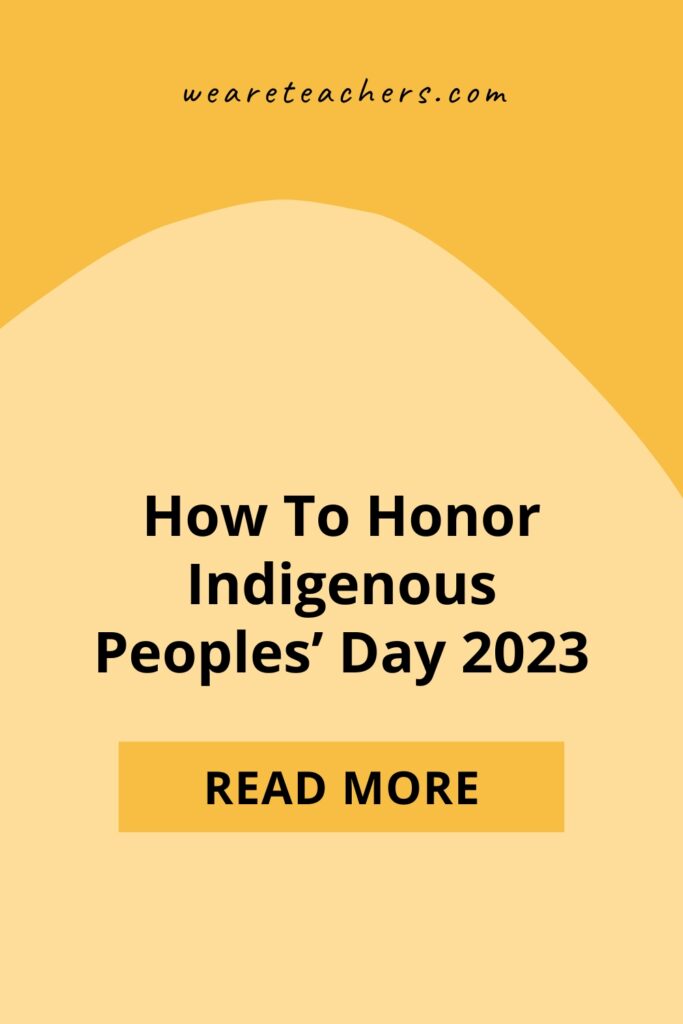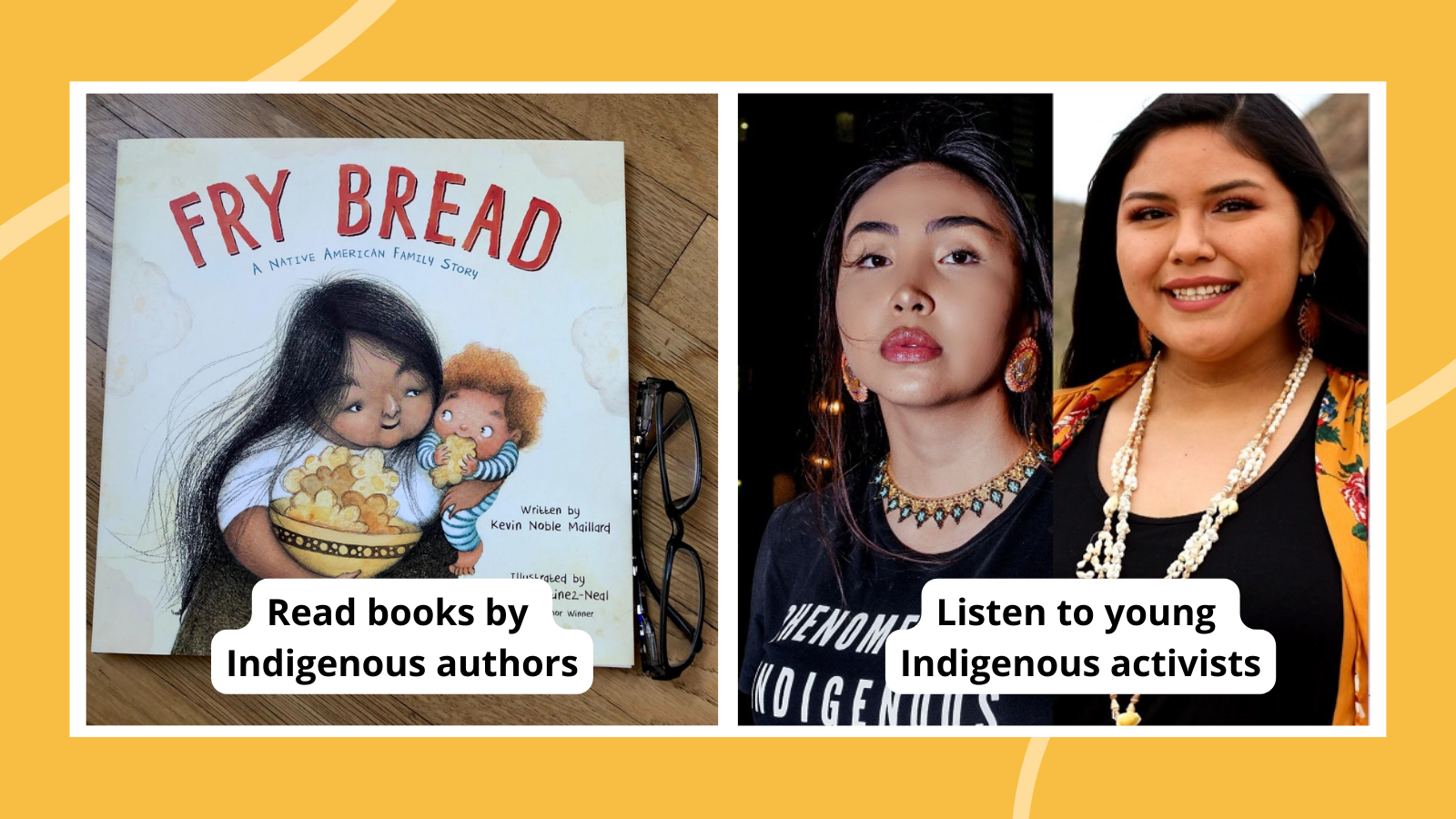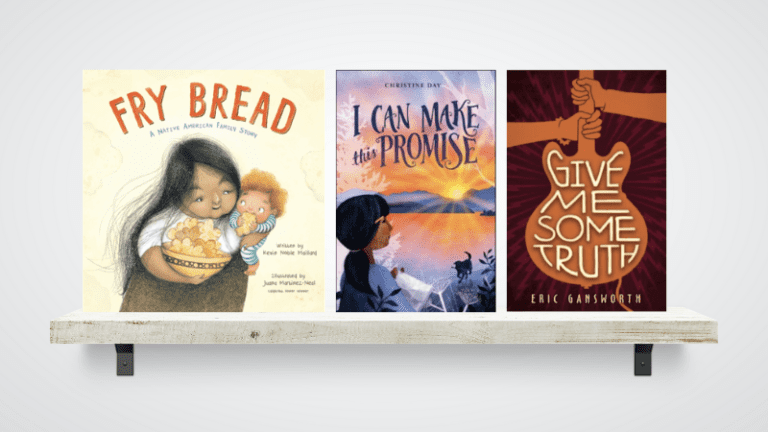Monday, October 9, 2023, is Indigenous Peoples’ Day. Many states and cities recognize this day and even choose to observe it over Columbus Day. This is a day to learn, to observe, to reflect, to create, and to connect through story and creation. It’s also a day to move beyond recognition and toward action and accountability.
The history of Indigenous people in the United States is thorny and vast. There is the horrific legacy of entire cultures being violently and systematically eradicated. And then there are stories of survival, fortitude, and deep connection to the environment and other people. Of course, Indigenous history doesn’t begin or end with either of these stories.
As educators, figuring out where to start unwinding this huge tapestry can be overwhelming. Every step toward action and accountability starts with inquiry and research. This post will share resources that can help you explore the past and the present lives of Indigenous peoples. There are also a few activities that you can do with your students to bring these notions to life.
First, should Columbus Day still play a role in the classroom?
Columbus Day was established to honor the “discovery” of America and serves as an opportunity to recognize the contributions of Italian Americans. The goal of Indigenous Peoples’ Day is not to erase and replace Italian American contributions. But it cannot be the only narrative. We now have a chance to examine cultural genocide, the institution of slavery, and the concept of discovery and how these narratives are constructed and at what cost.
Learn more: Stop Celebrating Columbus Day in Schools (Opinion)
Understand the meaning of “Indigenous”
“Indigenous peoples” refers to populations that are the original inhabitants of any given geographic region in the world. “Native American” and “American Indian” are widely used, but remember that the term Indian exists because Columbus believed he had reached the Indian Ocean. The best option is to refer to specific tribe names.
Visit these websites to learn more about Indigenous peoples
- Native Knowledge 360° is run by the Smithsonian National Museum of the American Indian. Check out featured resources for Unlearning Columbus Day Myths, plus hear from young Native activists and changemakers in special student webinars.
- PBS’s Native American Heritage Collection takes a look at Indigenous art, history, and culture as told by historians, artists, students, and scientists.
- The Zinn Education Project believes in taking a more engaging and more honest look at the past. Take a look at their resources on Native American topics.
Read books by Indigenous authors
Here are some reading materials that can help everyone learn more about Indigenous peoples. Each of these lists includes books by Indigenous authors that tell the stories of specific Indigenous tribes.
- We compiled this list of 15 Books by Indigenous Authors for the Classroom.
- Colours of Us has a list of elementary picture books about Native Americans that you can share with your class.
- The Los Angeles Public Library offers a list of upper-grade fiction.
- The New York Public Library suggests these books for adults.
Try these activities to observe and celebrate Indigenous Peoples’ Day 2023
There are many enriching activities you can do with your students to observe Indigenous Peoples’ Day, to honor Indigenous Peoples’ Month (November), and to bring a broader understanding of Thanksgiving, American history, and environmental activism to your classroom.
- Explore the ongoing work of the Standing Rock Sioux tribe as they fight to protect their land against environmental threats and injustice.
- Study the #RealSkins hashtag, which went viral in 2017 and shows a variety of Indigenous peoples’ traditional clothing. On a different note, the #DearNonNatives hashtag offers a glimpse at the many problematic representations of Indigenous peoples in American culture. (Note: Posts with either of these hashtags may contain inappropriate content; we recommend screening beforehand.)
- Discuss the controversial role of Indigenous-inspired mascots in American sports.
- Discuss the decision of the American Library Association to rename the Laura Ingalls Wilder Award the Children’s Literature Legacy Award because of the attitudes toward Indigenous people expressed in her books.
- Learn about the rich oral tradition of Native American storytelling and create your own stories to share using PBS’s Circle of Stories resources.
- Learn about the geography of Indigenous tribes by making regional maps.
- Teach about Native American women leaders using this guidance from Learning for Justice.
Want more articles like this? Be sure to subscribe to our newsletters!
Plus, read about why it’s time to stop celebrating Columbus Day in schools.


